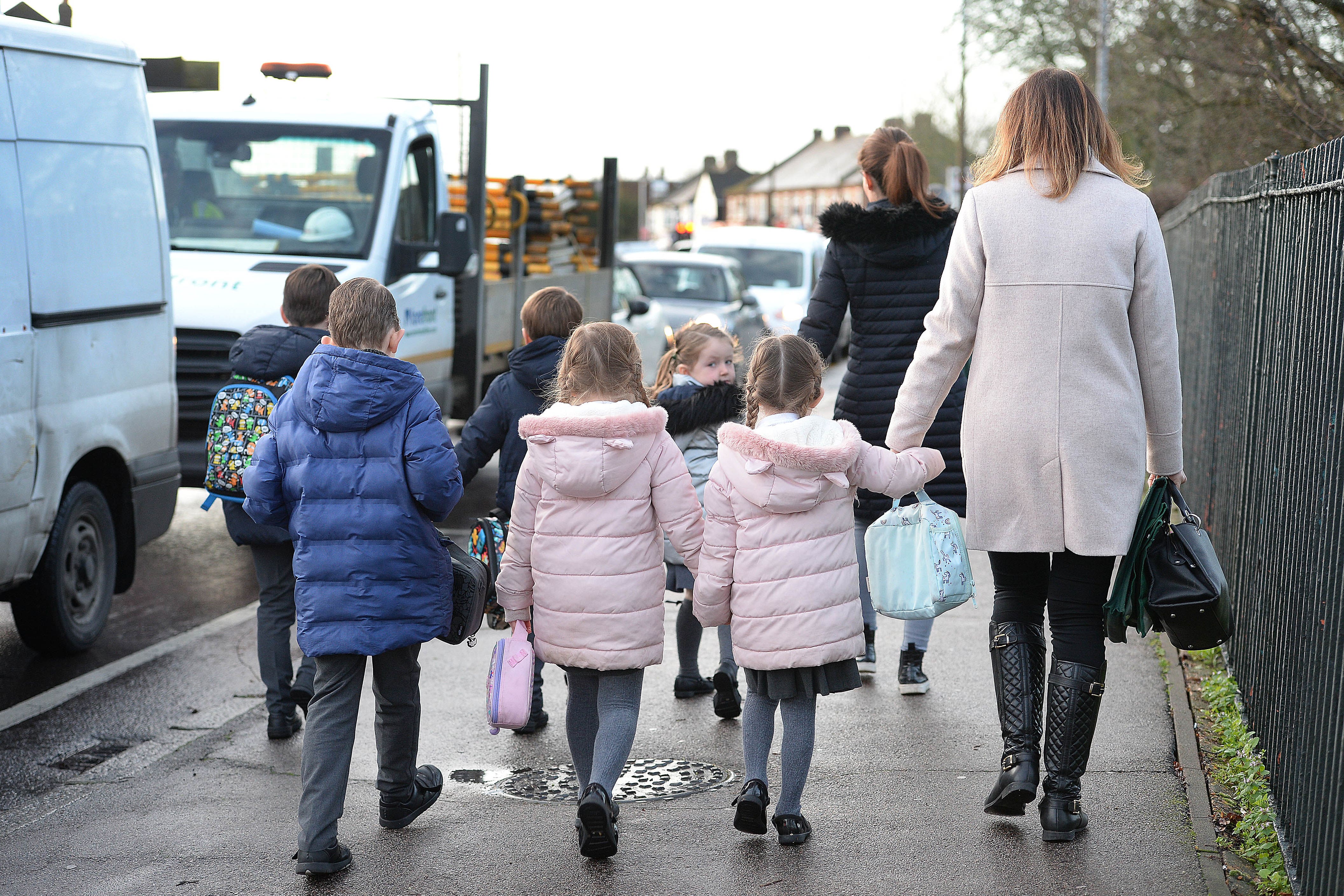Britain’s children facing ‘happiness recession’ compared to European counterparts, Children’s Society warns
‘Alarm bells are ringing’: Children’s Society warns of ‘deeply worrying picture’ on wellbeing of British teenagers

Your support helps us to tell the story
From reproductive rights to climate change to Big Tech, The Independent is on the ground when the story is developing. Whether it's investigating the financials of Elon Musk's pro-Trump PAC or producing our latest documentary, 'The A Word', which shines a light on the American women fighting for reproductive rights, we know how important it is to parse out the facts from the messaging.
At such a critical moment in US history, we need reporters on the ground. Your donation allows us to keep sending journalists to speak to both sides of the story.
The Independent is trusted by Americans across the entire political spectrum. And unlike many other quality news outlets, we choose not to lock Americans out of our reporting and analysis with paywalls. We believe quality journalism should be available to everyone, paid for by those who can afford it.
Your support makes all the difference.The UK’s children are facing a “happiness recession” compared to their European counterparts, a leading charity has warned, after its analysis found lower life satisfaction among young people in Britain.
Warning that “alarm bells are ringing”, the Children’s Society urged the new government to address the large gulf in life satisfaction facing children from different socioeconomic backgrounds in the UK, and between those in Britain and the rest of Europe.
In its latest Good Childhood Report, the charity collated data from various pieces of research in recent years which it said presents a “deeply worrying picture” on the wellbeing of teenagers in the UK.
That includes the most recent Programme for International Student Assessment survey for 2022, which showed that on average a quarter of 15-year-olds in the UK had low life satisfaction – ranking bottom of 27 countries and well above the European average of 17 per cent.
That rose to more than 30 per cent of 15-year-old girls in the UK reported low life satisfaction, compared with an average of 21 per cent in other European countries.
Those findings suggest that improving children’s wellbeing should be an even bigger priority here than elsewhere across Europe, the charity said.
Within the UK, the charity pointed to research suggesting a “large gap” in life satisfaction between the 25 per cent most advantaged and most disadvantaged 15-year-olds, which it said showed that “socio-economic inequalities also continue to be an important worry in this country”.
The Children’s Society’s annual household survey found those aged 10 to 17 living in households in financial strain were more likely to have low life satisfaction than their peers.

Meanwhile, the UK Household Longitudinal Study found the average wellbeing of children aged 10 to 15 was lower in the year to 2022 than when the survey began a decade prior.
Mark Russell, chief executive at The Children’s Society, said: “Alarm bells are ringing: UK teenagers are facing a happiness recession, with 15-year-olds recording the lowest life satisfaction on average across 27 European nations. Particularly affected are girls and those from disadvantaged backgrounds.
“Equally alarming is the high level of food poverty found among these young people. The UK ranks fourth highest for food poverty among 15-year-olds across 21 European countries, underscoring the severe impacts of societal inequalities on their wellbeing.
“Today, we’re not merely highlighting problems; we’re advocating for solutions. We have devised concrete steps to address these national challenges. It’s time for change, and we’re committed to leading the way.”
The charity has called for urgent attention on the issues from government, publishing a proposed “roadmap” to prioritise children’s wellbeing.

A government spokesperson said: “We understand the pressures teenagers are facing, and that is why we are taking action to deliver our mission to break down barriers to opportunity and improve the life chances of every child.
“We will develop an ambitious strategy to reduce child poverty, led by a taskforce co-chaired by the Education Secretary and Work and Pensions Secretary, looking at how to increase household income, bring down essential costs, and tackle the negative experience of living in poverty.
“This comes alongside plans to provide access to specialist mental health professionals in every school.”
In one of its first key tests since entering power, Sir Keir Starmer’s government has faced calls to scrap Tory chancellor George Osborne’s two-child benefit cap, which would bring 300,000 children people out of poverty and 700,000 more out of deep poverty, according to the Child Poverty Action Group.
But senior government figures have insisted that cutting the cap is unaffordable, and that ministers are instead committed to publishing a child poverty strategy.
Additional reporting by PA
Join our commenting forum
Join thought-provoking conversations, follow other Independent readers and see their replies
Comments